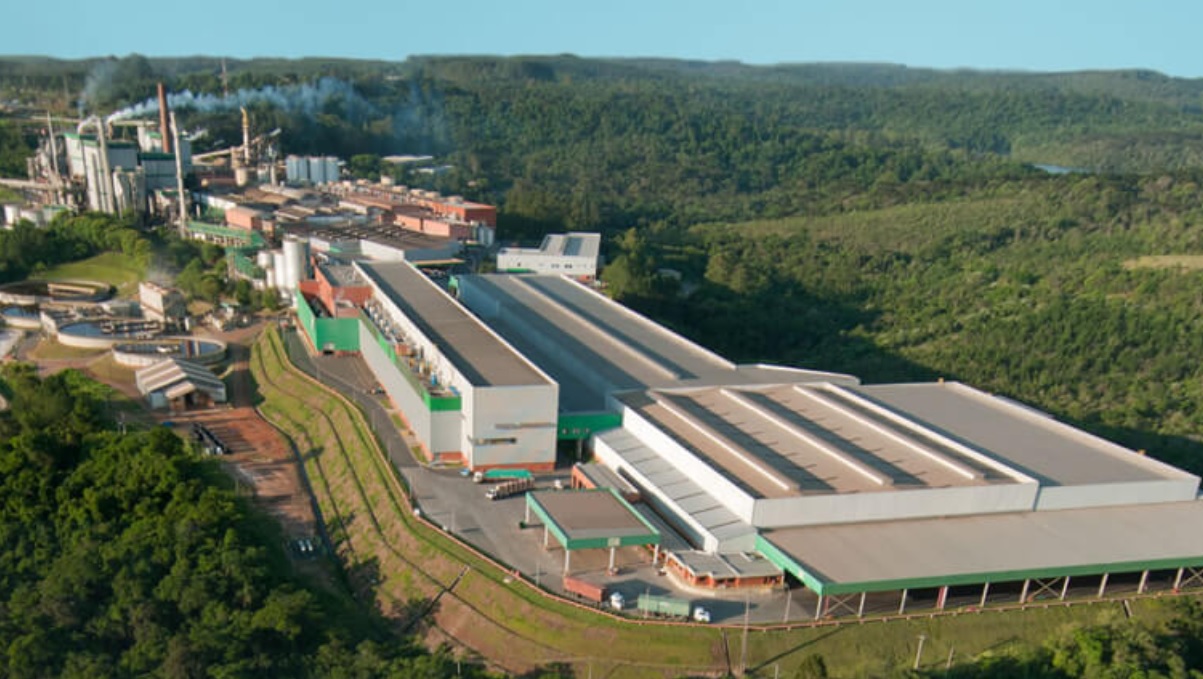Priority is expansion of fluff pulp, a market in which the company is already among the fourth largest in the world
12/01/2022
/i.s3.glbimg.com/v1/AUTH_37554604729d4b2f9f3eb9ad8a691345/internal_photos/bs/2022/U/g/gwkBqjQAe1Ry76rUKFoQ/01emp-100-klabin-b3-img01.jpg)
Cristiano Teixeira — Foto: Silvia Zamboni
The largest producer and exporter of packaging paper in Brazil and leader in the paper packaging market, Klabin has chosen Santa Catarina State for its next cycle of growth. The investment will start with fluff pulp, used in the production of menstrual pads and disposable diapers, but will also cover paper and packaging.
With three growth projects underway – in Paraná, São Paulo, and Ceará – the company is designing a future expansion round in the state where it already has industrial operations. The plan is to install between 1 million and 1.2 million tonnes per year of additional capacity of different products, such as fluff pulp, sack kraft, and kraft liner, in the Otacilio Costa and Correia Pinto plants, in the next few years.
Klabin does not yet disclose investment forecasts for this new cycle. However, based on similar projects and considering recent inflation which has further affected machinery and equipment costs, market sources heard by Valor estimate that a package with these features are expected to demand investments of $3 billion to $3.3 billion.
Klabin’s management had already indicated its intention to expand the production of fluff pulp. With the Puma I project, in Ortigueira (Paraná state), the company has become the fourth largest in the world in this segment, whose production is concentrated mainly in North America.
“We did not present a proposal about the fluff to the Board of Directors, but we are carrying out studies and we foresee fluff and long fiber as the main products in which the company is likely to invest in the future,” said CEO Cristiano Teixeira at the opening of Klabin Day, on Wednesday.
According to the executive, the risk of global recession has led the company to postpone the discussions about the new growth cycle, so a formal project may be submitted for approval by the board only at the end of next year or the beginning of 2024. Initially, the project was expected to be submitted for approval in the first half of 2023, but the global context has changed. If approved, the investment would start to be executed in 2024, and operate after 24 months.
In the pulp sector, the big bet in the short and medium term is on fluff. According to Alexandre Nicolini, head of Klabin’s pulp business, this type of pulp currently represents 10% of the global market, and specialized consulting firms project an expansion of 3.5% per year until 2040.
Just as it did in the Puma II project, which is in the construction phase of the second paper machine, the MP 28, the plan is to also to execute the new expansion cycle in stages.
According to the initial design, the new fluff pulp line would have priority and an installed capacity of 500,000 to 600,000 tonnes per year, together with a sack kraft machine of 200,000 to 250,000 tonnes per year. The kraft liner investment would come in the second phase.
The forest base to cope with the expansion is estimated at 100,000 to 120,000 hectares and Klabin has begun to prepare it. In Santa Catarina, the planting has begun on an additional 35,000 hectares for the project.
The company plans to invest R$5.4 billion in 2023, of which R$2.2 billion in maintenance and R$1.1 billion in special projects, including Figueira and Horizonte plants, said Marcos Ivo, the company’s financial and investor relations director.
The Puma II project, the largest investment in the company’s history, is expected to receive another R$2.1 billion over the next year. Puma II’s second paper machine, the MP 28, focused on paper boards, will go into operation in the second quarter of next year.
“The modernization or substitution of the Monte Alegre plant boiler is still under study, and we have two alternatives that indicate a lower investment than expected. The forecast is to conclude the studies and submit them to the board of directors for approval during the first half of the year,” said Mr. Teixeira.
If the project is approved, the disbursements planned for 2023 will refer to preparatory works and are already included in the total investment announced for the year.
According to the executive, the company’s sales volume in the next five years will benefit from the new capacities that have already started to operate, increasing the share of corrugated cardboard packaging and paper in the revenues.
“Historically and structurally, the Ebitda of packaging is more resilient and stable, especially in corrugated paper and paper board,” said the executive, adding that, for 2023, the vision for the average price of board in the international market implies at least a double-digit increase.
Given the new projects, the return on invested capital (ROIC) should continue to advance in the coming years, added Mr. Ivo. Between 2016 and 2022, this indicator was 14% on average, compared to 9% in previous years. From 2023 on, the forecast is for an average ROIC above that 14%.
“Looking ahead, we are confident in indicating that the ROIC will be higher as the projects since Puma I mature,” said the executive.
*By Stella Fontes — São Paulo
Source: Valor International

